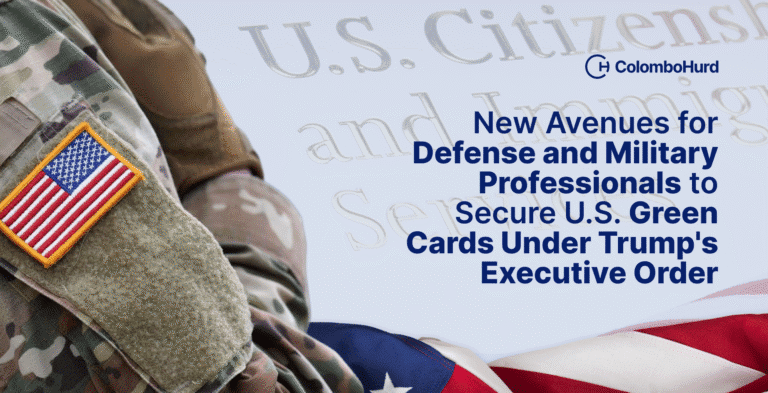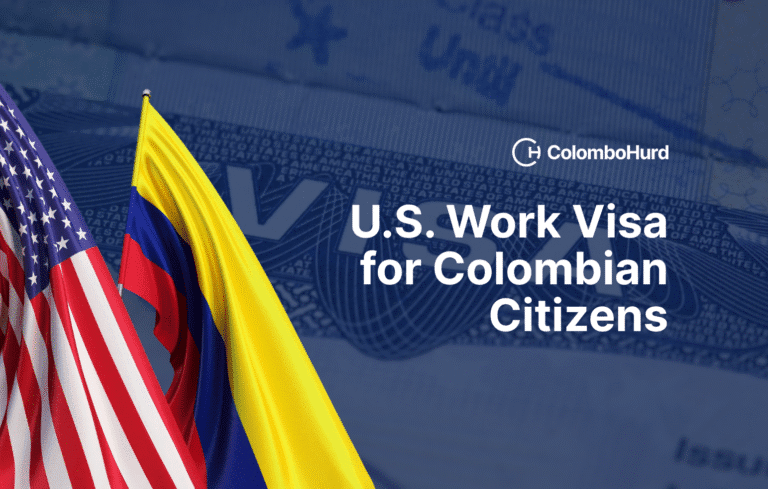Recent executive orders from the Trump administration have reinforced the importance of national security and military readiness, creating stronger pathways for foreign nationals with defense and military expertise to pursue permanent residency through the EB-2 National Interest Waiver (NIW). This development offers new hope for qualified professionals seeking to contribute their specialized skills to America’s defense and security infrastructure.
Understanding the EB-2 NIW Pathway
The EB-2 National Interest Waiver allows foreign nationals with advanced degrees or exceptional ability to self-petition for permanent residency without requiring an employer sponsor or labor certification. Applicants must demonstrate that their work serves the national interest of the United States. In recent years, the “national importance” element has become the area USCIS most consistently challenges in these petitions, requiring substantial documentation and strategic argumentation to overcome increased scrutiny.
How Executive Orders Support NIW Claims for Defense Professionals
The Trump administration’s executive orders on “Organization of the National Security Council and Subcommittees” and “Prioritizing Military Excellence and Readiness” have established a clear federal mandate that places national security and military effectiveness as top priorities. For defense and security professionals, these orders provide valuable support for proving national importance in NIW petitions.
These executive orders explicitly prioritize “the safety and security of the United States and American people” and developing “the world’s most lethal and effective fighting force.” This language creates a direct link between defense expertise and America’s national interests, strengthening NIW applications for qualified professionals.
The “Organization of the National Security Council and Subcommittees” order acknowledges the complex and rapidly evolving nature of national security threats, emphasizing the need for coordinated approaches to security challenges. Meanwhile, the “Prioritizing Military Excellence and Readiness” order focuses on enhancing unit cohesion, mental and physical readiness, and overall military effectiveness—all areas where experienced foreign professionals can make meaningful contributions.
Recent Success: Defense Professional Secures NIW Approval
We recently celebrated an EB-2 NIW approval for a client with extensive experience in strategic planning and security management, highlighting the viability of this pathway for defense professionals.
Our Colombian client, who holds a master’s degree in war studies and a bachelor’s degree in political science, brought over 20 years of experience developing security frameworks, optimizing resources for operational efficiency, and managing high-stakes crisis situations. Colombo & Hurd Immigration Attorney Jean-Paul Castro successfully guided this case to approval, navigating the complex requirements of the NIW petition.
“What made this case compelling was translating our client’s technical expertise into clear, accessible language for USCIS adjudicators,” explains Mr. Castro. “His background in strategic defense and crisis management directly aligned with national security priorities outlined in recent executive orders. We were able to bridge the gap between specialized expertise and regulatory requirements, creating a persuasive narrative that resonated with immigration officials.”
Aligning Security Expertise with National Priorities
Our client’s proposed endeavor—developing and implementing advanced physical security strategies for businesses across the United States—directly addresses growing security threats to national infrastructure and public safety. His work focuses on creating robust security frameworks that protect critical assets and enhance organizational resilience against emerging threats.
This work aligns perfectly with the executive order on “Organization of the National Security Council and Subcommittees,” which calls for improved “decision-making structures and processes to address national security challenges.” Similarly, it supports the goals of “Prioritizing Military Excellence and Readiness” by enhancing the security landscape that enables military effectiveness.
The client’s expertise in risk assessment, threat mitigation, and crisis response demonstrates the exact capabilities emphasized in these executive orders. By highlighting these connections in the NIW petition, we were able to establish a clear case for national importance.
Using Current Policy to Build Stronger NIW Applications
The Trump administration’s focus on security and military readiness has clarified the national importance requirement for NIW petitions—typically the most challenging element to prove. This policy environment creates favorable conditions for professionals with backgrounds in:
- Military strategic planning and operations
- Cybersecurity and information warfare
- Intelligence analysis and threat assessment
- Physical security and infrastructure protection
- Crisis management and emergency response
- Defense technology development and implementation
- Maritime and border security operations
“There is now explicit recognition at the federal level that security, defense, and readiness are urgent national priorities,” notes Mr. Castro. “These executive orders provide a robust framework for connecting our clients’ expertise directly to America’s strategic interests. When preparing NIW petitions, we can now point to specific language in these orders that validates the national importance of our clients’ work.”
Crafting Successful NIW Petitions for Defense Professionals
While the current policy environment is favorable, successful NIW petitions still require careful preparation and strategic presentation. Defense and security professionals should focus on:
- Clearly articulating specialized expertise: Demonstrate advanced knowledge and skills that are valuable to U.S. security interests.
- Establishing a track record of achievement: Document past accomplishments and their impact on security outcomes.
- Connecting expertise to executive orders: Explicitly link professional capabilities to the priorities outlined in current policy directives.
- Providing supporting evidence: Include letters from recognized experts, publications, and other documentation validating professional contributions.
- Outlining future contributions: Detail how continued work in the United States will advance national security objectives.
Opportunities for Defense and Military Professionals
For foreign nationals with backgrounds in defense, security, and military fields, the current policy environment offers a clearer path to permanent residency through the EB-2 NIW category. By effectively demonstrating how their expertise advances America’s national security goals, these professionals can position themselves for successful self-sponsored immigration.
The executive orders provide valuable context and supporting evidence for the national importance prong of the NIW analysis, potentially streamlining the path to approval for qualified applicants. This represents an important opportunity for defense professionals to secure permanent residency while contributing their skills to America’s security infrastructure.
With our track record of success and deep understanding of how to align client qualifications with current national priorities, we continue to help defense and security professionals navigate the NIW process successfully in this favorable policy environment.




